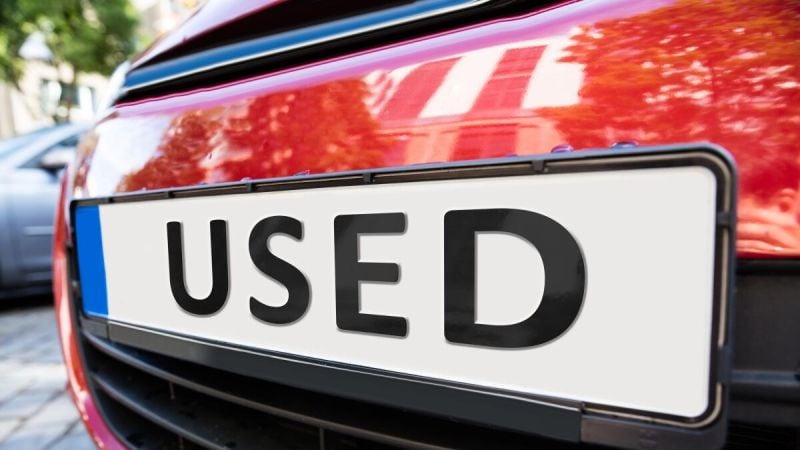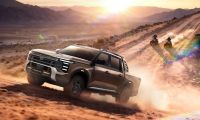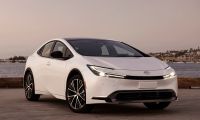Is paying inflated prices and going into debt necessary to own a suitable vehicle?
Will you have to settle for used models with fewer safety features and questionable reliability?
Not at all. A new update on used car shopping demonstrates that Consumer Reports automotive experts are helping shoppers find used-car options that can save them up to tens of thousands of dollars while still allowing shoppers to own a safe vehicle with modern safety features and a proven track record of reliability―all by applying a similar level of rigor and selectively as they do with new vehicle reviews.
Tariffs are Altering Car Shopping Today
CR analysts note that because today's current shoppers are concerned about looming inflation and the uncertainty of tariffs and their impact on consumers, buying a used vehicle can make good economic sense for most households.
"With the historically high price of new autos these days, more and more people are naturally looking to the pre-owned market in search of a better bargain," says Alex Knizek, associate director of auto test development at Consumer Reports. "But they shouldn't have to sacrifice safety, reliability, or fuel economy to stay within their budget. That's why we now present Used Car Top Picks and have expanded our used-car coverage and insights."
Consumer Reports is well known for its informative new car reviews, in which it has highlighted exceptional cars, SUVs, and trucks gleaned through extensive testing and customer survey data.
In their analysis of used vehicles CR automotive experts consider the following factors:
- Great new cars don't always make great used cars, especially when factoring in depreciation and long-term reliability.
- To identify smart choices, used cars were selected from a generation perspective rather than a model-year perspective.
- The benefit of a generational perspective is that it consistently reveals the models that become more trouble-free over a generation's multi-year span; the last two years of a generation tend to be the best.
- Safety features in new models, which are often found in used models, are another qualifying consideration.
- Car value is essential, as some models depreciate more than others, making them a bargain as a used vehicle compared to other used car models of the same age.
- Used car shoppers should remember that each car is unique, has its history, and must be inspected by a professional mechanic before purchase.
"The strategy we employ for selecting used cars emphasizes value within a price range, and it means that the highlighted models may not have been the highest-scoring models when tested new. Instead, they're often good cars that depreciated more than others, making them more attractive as used cars than they were when new," states the update.
THE BEST USED CAR TOP PICKS BY CONSUMER REPORTS
Sedan Under $10,000
2016 Mazda 6 (Generation 2014-2011)
Price Range: $8,550 - $11,550
Owner Reported MPG: 29 mpg
Sedan Under $15,000
2019 Toyota Corolla (Generation 2014-2019)
Price Range: $13,325 - $16,600
Owner Reported MPG: 32 mpg
SUV Under $15,000
2018 Mazda CX-5 (Generation 2017-2025)
Price Range: $12,850 - $16,025
Owner Reported MPG: 26 mpg
Hybrid Under $20,000
2019 Toyota Camry Hybrid (Generation 2018-2024)
Price Range: $16,400 - $20,800
Owner Reported MPG: 45 mpg
Small SUV Under $20,000
2021 Kia Sportage (Generation 2017-2022)
Price Range: $15,450 - $20,150
Owner Reported MPG: 25 mpg
Hybrid SUV Under $20,000
2018 Toyota RAV4 Hybrid (Generation 2016-2018)
Price Range: $16,150 - $21,000
Owner Reported MPG: 32 mpg
3-Row SUV Under $20,000
2018 Mazda CX-9 (Generation 2016-2023)
Price Range: $12,625 - $17,600
Owner Reported MPG: 23 mpg
Luxury SUV Under $20,000
2017 Lexus NX (Generation 2015-2021)
Price Range: $17,500 - $20,300
Owner Reported MPG: 25 mpg
Pickup Truck Under $20,000
2015 Toyota Tacoma (Generation 2005-2015)
Price Range: $14,025 - $20,425
Owner Reported MPG: 19 mpg
Sports Car Under $20,000
2020 Mazda MX-5 Miata (Generation 2016-2024)
Price Range: $15,525 - $21,725
Owner Reported MPG: 32 mpg
There's More to Buying a Used Car Than Its Price… It's What Happens After
Although you may have the recommended pre-purchase inspection before buying that used model and the seller's assurance that everything is on the up and up, there are 7 important things that need to be taken care of afterward in this order:
- Transfer the title and registration―Go to your local DMV immediately to ensure the car is legally in your name. Beware of curbstoning scams.
- Get insurance coverage―Make sure you have appropriate and affordable insurance coverage in place before you drive much further.
- Get a full mechanical inspection―This can uncover hidden issues missed during the pre-purchase inspection and help you address them early before they become costly.
- Change all fluids and filters―Engine oil, transmission fluid, coolant, brake fluid, air filters, and cabin filters. Don't assume they were changed or changed correctly.
- Check or replace the timing belt or chain―If the car has a timing belt or timing chain and there's no proof it was changed recently, replacing it can prevent catastrophic engine damage.
- Check tires and brakes —Make sure they're safe and not worn past their limits.
- Update maintenance records and start a log―Keep track of what's been done and when to stay on top of future car maintenance.
COMING UP NEXT: Consumer Reports Most Popular New Cars and SUVs Should Come As No Surprise to New Car Shoppers Focused on Reliability and Cost
Timothy Boyer is an automotive reporter based in Cincinnati who currently researches and works on restoring older vehicles with engine modifications for improved performance. He also reports on modern cars (including EVs) with a focus on DIY mechanics, buying and using tools, and other related topical automotive repair news. Follow Tim on Twitter at @TimBoyerWrites as well as on Facebook and his automotive blog "Zen and the Art of DIY Car Repair" for useful daily news and topics related to new and used cars and trucks.
Image Source: Deposit Photos
Set as google preferred source











